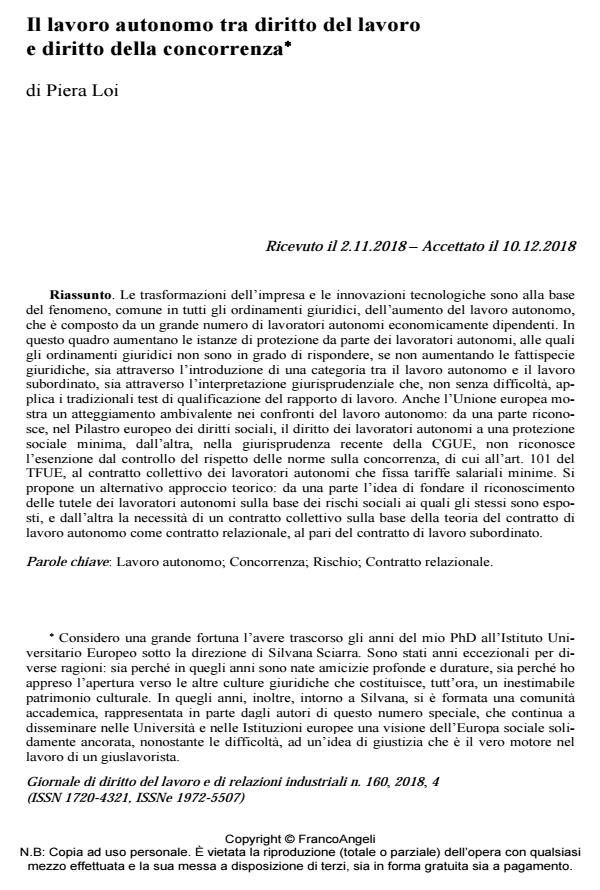Self-Employment between Labour Law and Competition Law.
Journal title GIORNALE DI DIRITTO DEL LAVORO E DI RELAZIONI INDUSTRIALI
Author/s Piera Loi
Publishing Year 2019 Issue 2018/160
Language Italian Pages 27 P. 843-869 File size 289 KB
DOI 10.3280/GDL2018-160007
DOI is like a bar code for intellectual property: to have more infomation
click here
Below, you can see the article first page
If you want to buy this article in PDF format, you can do it, following the instructions to buy download credits

FrancoAngeli is member of Publishers International Linking Association, Inc (PILA), a not-for-profit association which run the CrossRef service enabling links to and from online scholarly content.
Technological innovation and the enterprise transformation are responsible of the phenomenon, common in all legal systems, of the rise of self-employment, composed by a large number of economically dependent self-employed persons. In this framework the requests of the typical labour law protections coming from the self-employed persons is growing. Legal orders are not ready to give an answer to these requests but multiplying legal categories and introducing a category between employee and independent contractor or, through the case law, applying, with great difficulties, the traditional tests in order to qualify the employment contracts. The European Union shows an ambivalent attitude towards self-employment: from one side the European Pillar of social rights recognises the right of independent contractor to a minimal social protection, from the other side the CJEU denies the exemption of the collective agreement of self-employed persons setting minimum wages from competition rules set by art. 101 TFEU. An alternative theoretical approach is suggested: from one side the idea of recognising rights and protection to the self-employed persons on the base of the social risks to which they are exposed, from the other side the necessity of a collective agreement for the self-employed persons on the base of the relational nature of their contract similar to the employment contract. .
Keywords: Self employment; Competition; Risk; Relational contract
Piera Loi, Il lavoro autonomo tra diritto del lavoro e diritto della concorrenza in "GIORNALE DI DIRITTO DEL LAVORO E DI RELAZIONI INDUSTRIALI " 160/2018, pp 843-869, DOI: 10.3280/GDL2018-160007